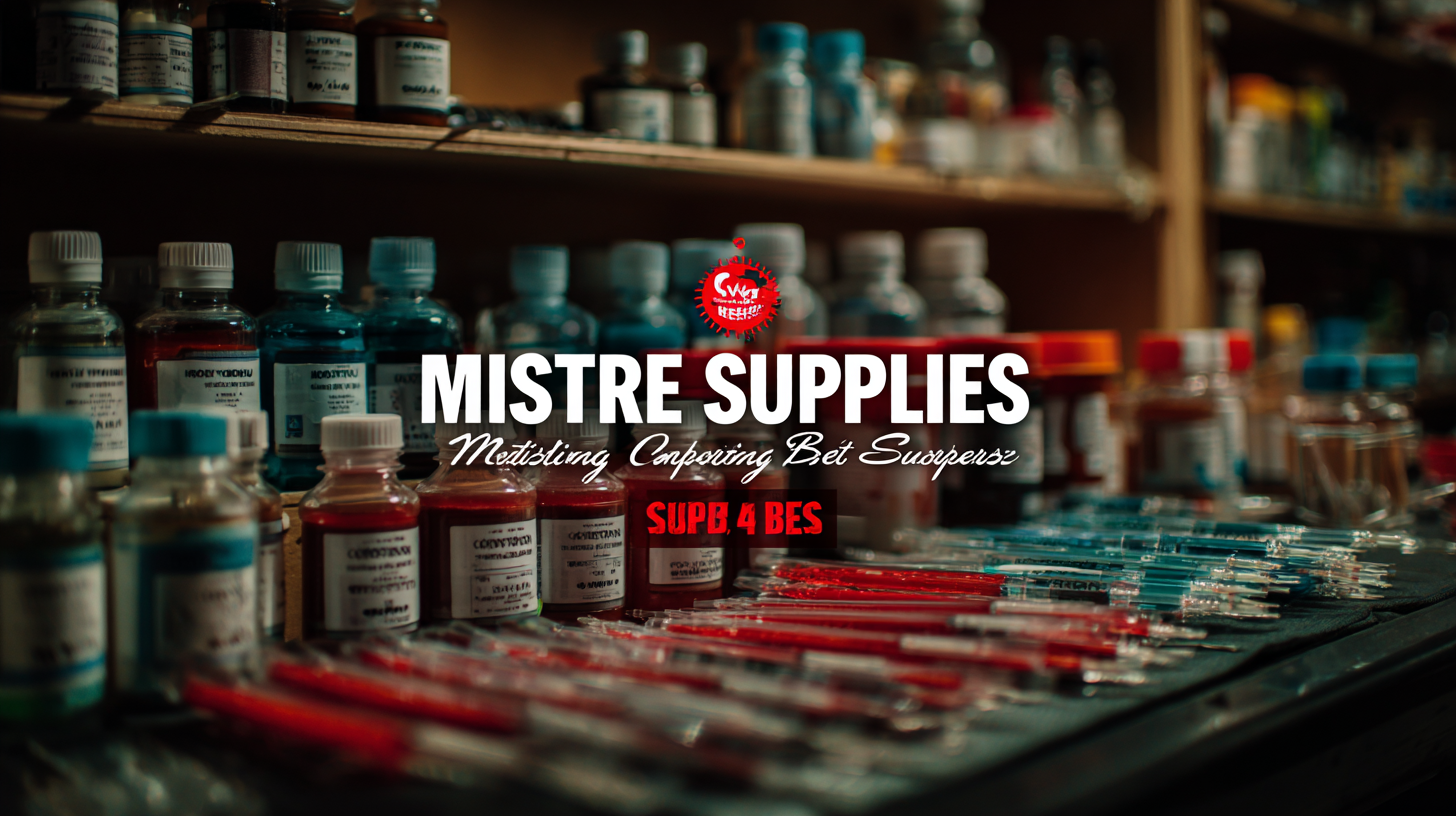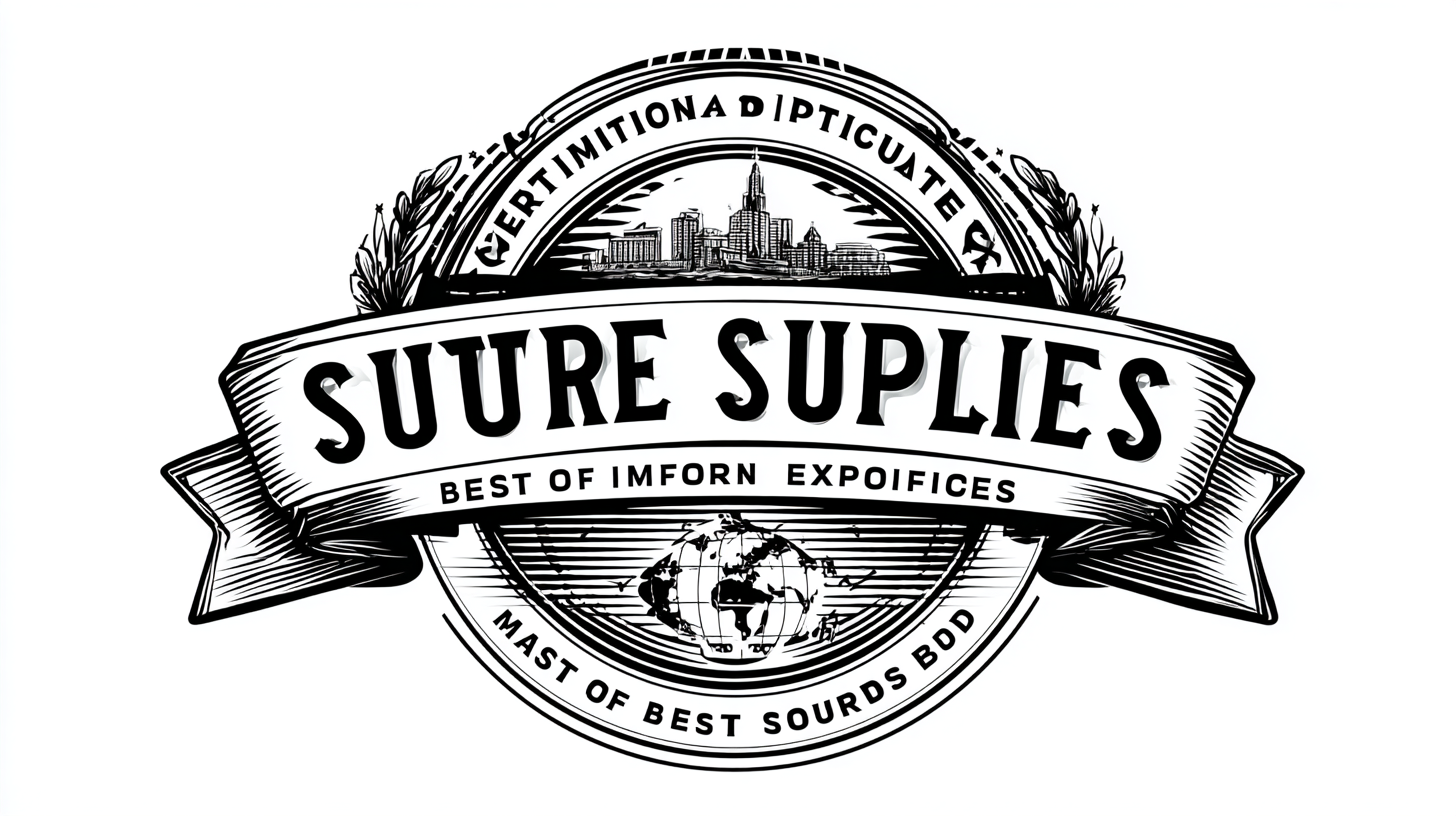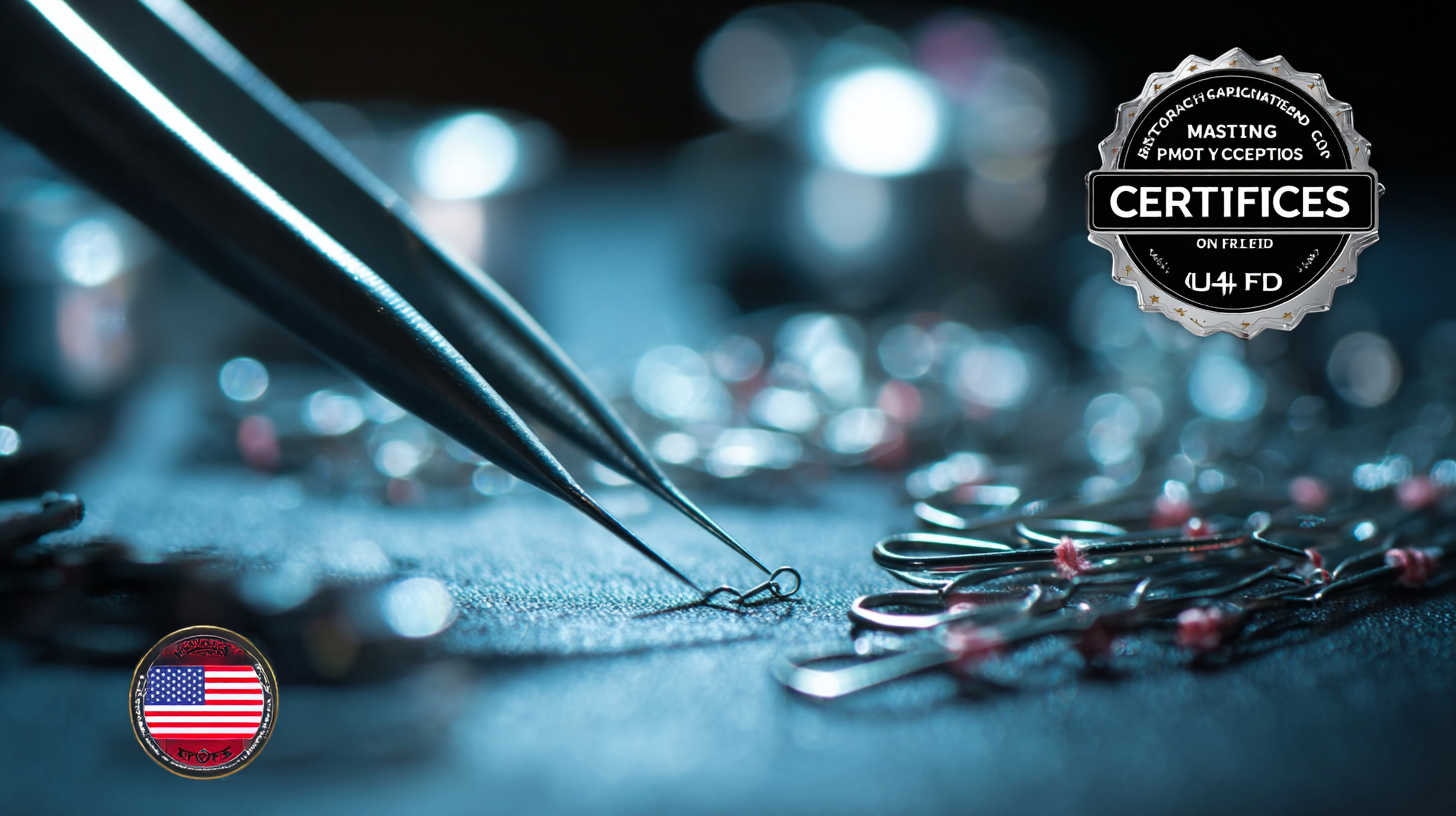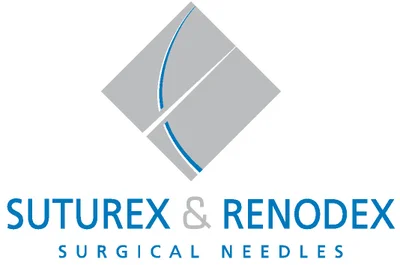You have successfully logged out.
Mastering Import and Export Certification for Best Suture Supplies in Your Business
In the competitive landscape of the medical supply industry, mastering the intricacies of import and export certification is crucial for businesses aiming to offer top-quality suture supplies. According to a recent report by Market Research Future, the global sutures market is projected to reach USD 4.1 billion by 2027, growing at a CAGR of 5.9%. This remarkable growth underscores the increasing demand for high-quality suture products, particularly those sourced from leading manufacturers in China, renowned for their innovation and reliability. Establishing a solid certification process not only ensures compliance with international standards but also builds trust with healthcare providers and patients alike. As such, businesses must navigate the complexities of regulatory frameworks to secure their position in this lucrative market.

Understanding the Importance of Import and Export Certifications in the Suture Supply Chain
In today’s competitive landscape, understanding the importance of import and export certifications in the suture supply chain is crucial for any business involved in medical supplies. These certifications not only signify compliance with international standards but also reassure customers regarding the quality and safety of the products. By obtaining the necessary certifications, companies can facilitate smoother transactions, enhance their marketability, and build trust with healthcare providers.
Tip: Ensure that your organization stays updated on the specific regulations that apply to your region and the markets you wish to enter. This knowledge is vital when navigating the complex landscape of compliance requirements.
Additionally, maintaining thorough documentation of your supply chain processes is essential. Certifications often require meticulous records to prove adherence to safety and quality standards. Regular audits can help identify gaps in compliance before they escalate into significant issues.
Tip: Implement a streamlined documentation management system that can simplify the process of tracking imports and exports. This proactive approach will not only aid in certification efforts but also improve overall efficiency in your supply chain management.
Mastering Import and Export Certification for Best Suture Supplies in Your Business
| Certification Type | Issuing Authority | Validity Period | Cost of Certification | Importance in Supply Chain |
|---|---|---|---|---|
| ISO 13485 | International Organization for Standardization | 3 years | $5,000 | Enhances credibility and product quality assurance. |
| CE Marking | European Commission | 5 years | $2,500 | Mandatory for market access in Europe. |
| FDA Registration | U.S. Food and Drug Administration | Indefinite (Annual Renewal Required) | $1,500 | Essential for selling medical devices in the USA. |
| Good Manufacturing Practices (GMP) | Various National Authorities | Varies based on region | $3,000 | Critical for ensuring product safety and efficacy. |
Key Regulatory Bodies Governing Suture Import and Export Certification Practices
Navigating the complexities of import and export certification for suture supplies requires an understanding of key regulatory bodies. As of May 5, 2025, the Ministry of Industry and Trade (MoIT) will be the sole authority responsible for issuing Certificates of Origin (C/O), which are crucial for verifying the origin of goods in international trade. This shift emphasizes the need for businesses to stay informed about regulatory changes in order to maintain compliance and streamline their import-export processes.
Tip 1: Stay updated on certification bodies and their guidelines. Regularly check for announcements from MoIT and other regulatory agencies to ensure that you are aware of any changes that could impact your certification requirements.
Moreover, the recent suspension of an organic certification agency by APEDA highlights the importance of choosing reliable certification partners. Ensuring that your certifying agency adheres to established standards will not only facilitate smoother exports but also protect your business from potential compliance issues.
Tip 2: Conduct thorough research and due diligence when selecting certification bodies for your suture supplies. Verify their credentials and track record to avoid disruptions in your supply chain.
As governments introduce new guidelines, such as India's halal meat export regulations effective October 16, 2024, businesses in the suture supply sector must remain vigilant. Understanding the evolving legal frameworks will enable you to navigate the regulatory landscape more effectively.
Import and Export Certification Compliance for Suture Supplies
Step-by-Step Process for Securing Import and Export Certifications for Suture Products
 Navigating the world of import and export certification for suture products can be a complex, yet essential process for businesses in the medical supply industry. To secure the necessary certifications, start by understanding the specific requirements set forth by regulatory authorities. This often involves
meticulous preparation of documentation that demonstrates compliance with safety and quality standards. Ensuring that your products meet these criteria not only streamlines the certification process but also builds trust with potential clients.
Navigating the world of import and export certification for suture products can be a complex, yet essential process for businesses in the medical supply industry. To secure the necessary certifications, start by understanding the specific requirements set forth by regulatory authorities. This often involves
meticulous preparation of documentation that demonstrates compliance with safety and quality standards. Ensuring that your products meet these criteria not only streamlines the certification process but also builds trust with potential clients.
Once you have a grasp of the documentation needed, focus on establishing a reliable supply chain. This also means identifying reputable suppliers who can provide high-quality suture materials that meet international standards. Engaging with them early on allows you to align your certification goals, making it easier to gather the required data and validate your products. Additionally, staying informed about changes in regulations and market trends can help keep your business competitive and prepared for the evolving landscape of the medical supply industry.
Critical Compliance Standards: ISO and FDA Regulations Impacting Suture Supplies
Navigating the complex landscape of import and export certification is crucial for businesses dealing with suture supplies. Compliance with rigorous standards set by organizations such as the International Organization for Standardization (ISO) and the U.S. Food and Drug Administration (FDA) ensures not only the quality and safety of the products but also smooth market entry. ISO certifications, notably those pertinent to medical devices, provide a structured framework that enhances operational efficiencies and fosters trust among healthcare providers.
The FDA regulations play an equally significant role in the suture supply chain. These regulations demand comprehensive documentation and compliance with Good Manufacturing Practices (GMP). By adhering to FDA rules, businesses safeguard against potential liabilities and ensure their products meet the required safety standards before market release. Understanding these critical compliance standards is essential for any company looking to establish itself in the medical supply sector and deliver high-quality, safe sutures to healthcare professionals and patients alike.
Navigating Common Challenges in Import and Export Certification for Suture Businesses
Navigating the intricacies of import and export certification is a crucial step for businesses specializing in suture supplies. One of the common challenges faced in this process is understanding the ever-evolving regulatory landscape. Different countries have varying certification requirements, which can lead to confusion and delays in product shipments. Staying updated with the latest regulations and ensuring your products comply with international standards is essential. Engaging with a compliance specialist or consultant can provide valuable insights and help streamline the certification process.

Another significant hurdle is the documentation involved in import and export procedures. Businesses often struggle with the myriad forms, licenses, and certificates required to facilitate seamless transactions. Accurate and complete documentation is vital to avoid penalties and ensure timely delivery. Implementing a robust administrative system can track and manage these documents efficiently. Training your team to familiarize them with the specific requirements for suture supplies can also mitigate misunderstandings and expedite processes, allowing your business to focus on growth and customer satisfaction.
